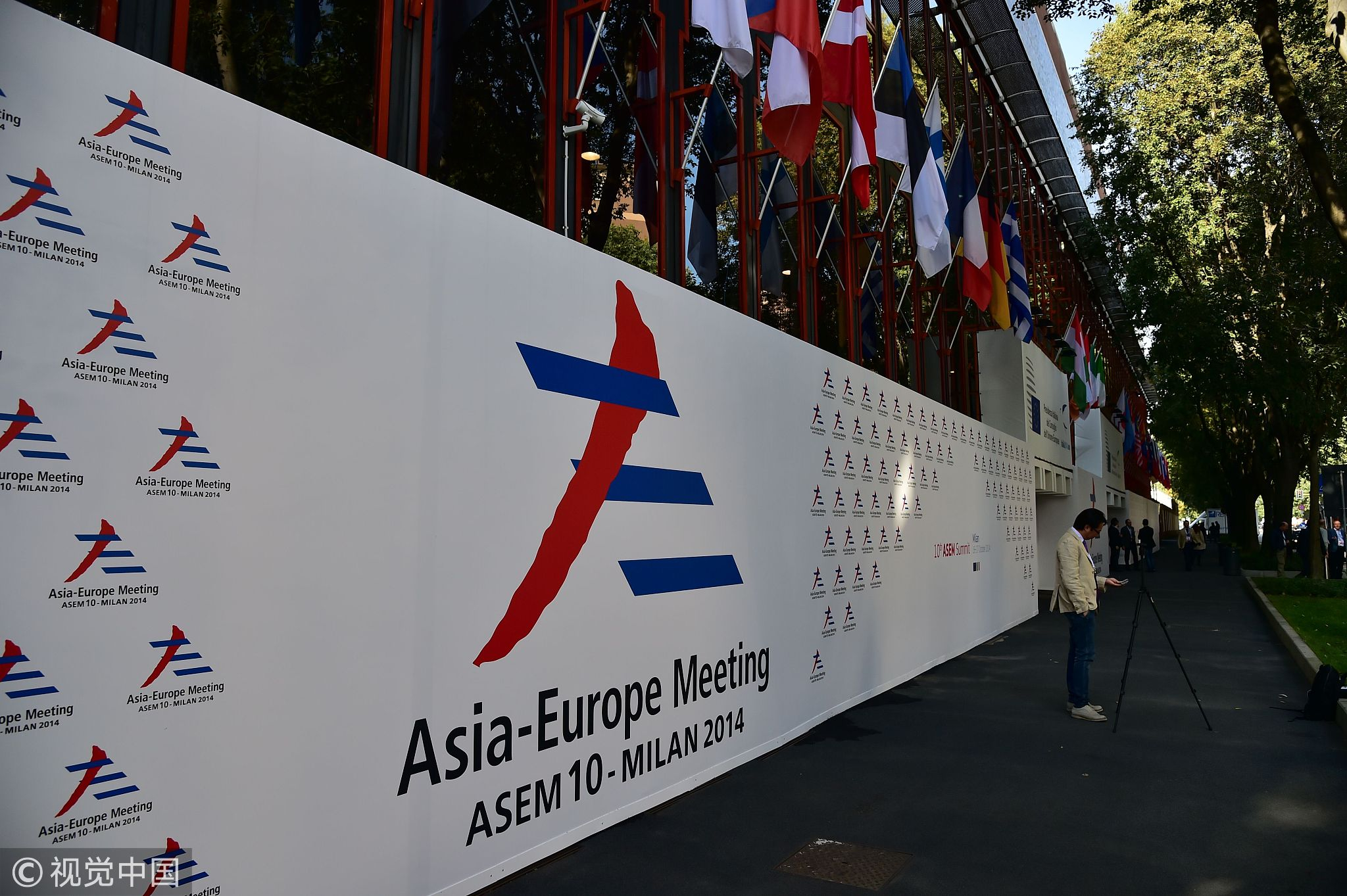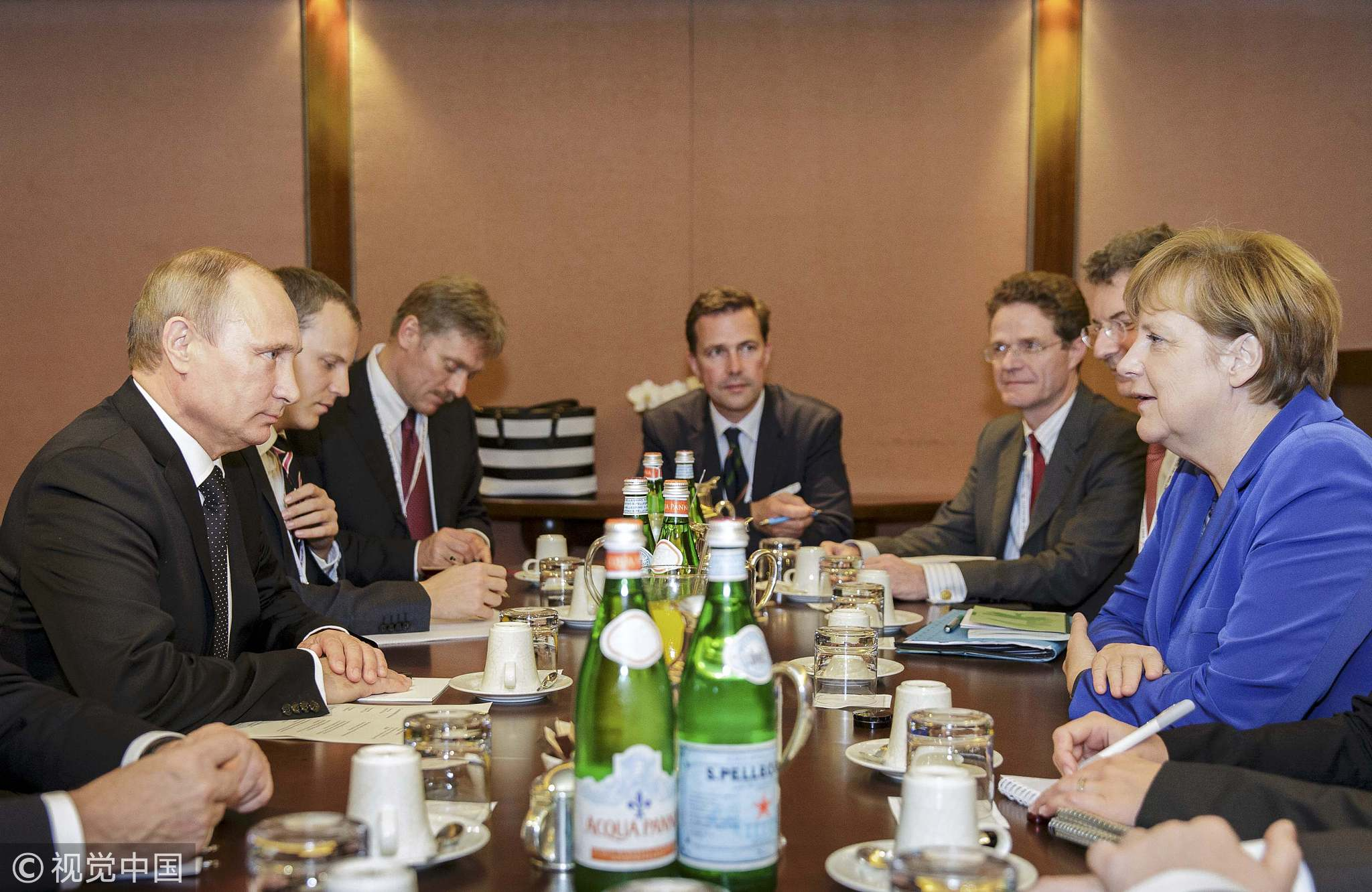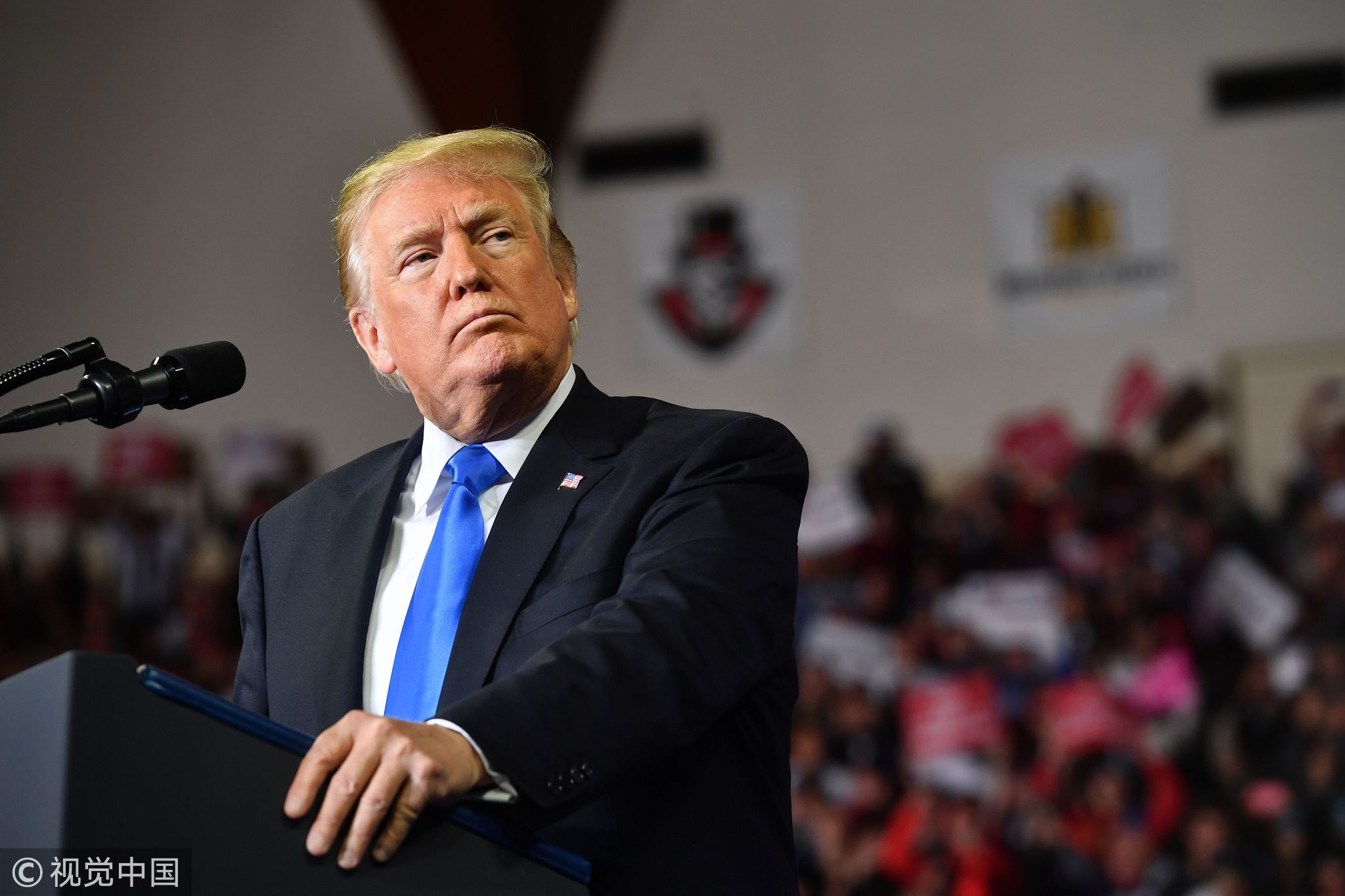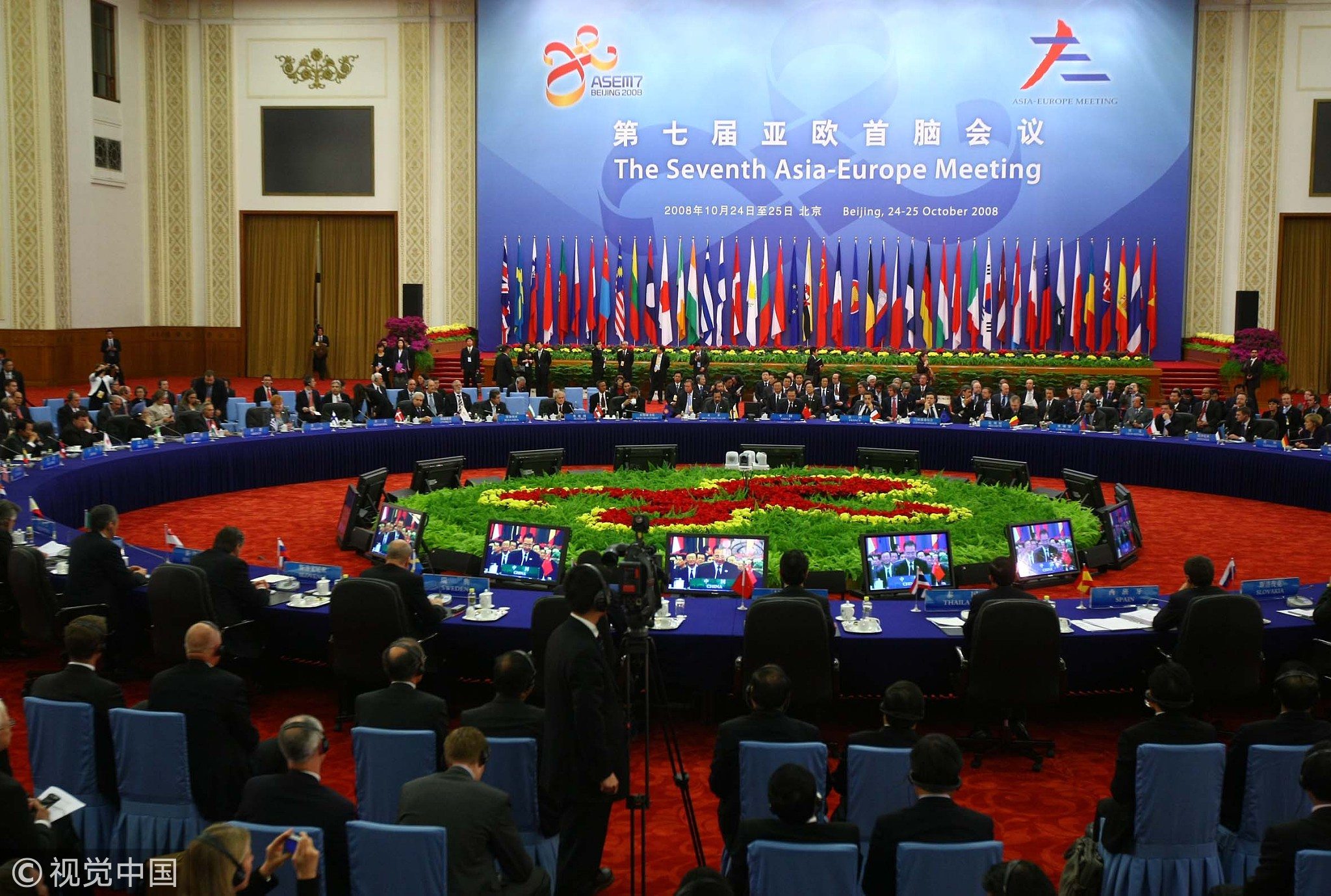Editor's note:Jiang Shixue is a professor at the Institute of Global Studies under Shanghai University. The article reflects the author's opinion, and not necessarily the views of CGTN.
The 12th Asia-Europe Meeting (ASEM) summit will take place on October 18-19, 2018, in Brussels, Belgium. It is expected that the heads of state or government of 51 Asian and European countries as well as representatives of the European Union, and the Secretary General of the Association of Southeast Asian Nations (ASEAN) will participate in the gathering.
Established in 1996, ASEM is the largest inter-governmental forum in the world. It aims to promote mutual understanding and trust through dialogue in the areas of political consultation, economic cooperation and cultural exchange so as to form a comprehensive partnership between the two continents.
Each summit chooses a topic of discussion. This year it will focus on the theme "Europe and Asia: global partners for global challenges," which is relevant to the current world situation. Leaders will seek to strengthen dialogue and cooperation between the two sides on a wide range of issues.
It is true that ASEM functions like a talk-shop. And the documents it has publicized have no legal binding. However, it is still important in the following aspects:

October 15, 2014: The Asia-Europe Meeting (ASEM) logo on display on the eve of the ASEM 10 summit at the Fiera Milano in Milan. /VCG Photo
It offers a good opportunity for government leaders from the two important continents to exchange views and perceptions about the current situation of the world.
The world has never been so uncertain and unsafe: from unilateralism to trade protectionism, from climate change to cyber insecurity, from the deadlock of the Doha Round to environmental degradation, and from the Syrian civil war to the nuclear programs in Iran and the DPRK.
To deal with these issues, Asia and Europe have the obligation to play a constructive role.
Besides, it is a good platform for multilateral diplomacy. Needless to say, international relations, misunderstandings, misperceptions and misjudgments have appeared from time to time. One of the best ways of dealing with these problems is to encourage dialogues between and/or among countries.

October 16, 2014: Germany's Chancellor Angela Merkel speaks to Russian President Vladimir Putin at the Hyatt hotel after the first day of the Asia-Europe Meeting (ASEM) in Milan. /VCG Photo
However, government leaders of different countries, large or small, are busy with their domestic affairs and day-to-day homework. Therefore, it is almost impossible for them to travel around the world to exchange views with their counterparts in other countries.
ASEM offers a rare opportunity for leaders to meet and talk.
Apart from that, it might figure out ways of dealing with the “Trump Syndrome.”
President Trump or the United States, happy with its status of the only super-power on the world stage but concerned with the possibility of losing its position in the face of the emerging economies, is pursuing unilateralism in every aspect of international affairs.
This policy has resulted in what we may call a “Trump Syndrome.” The syndrome has not only created great uncertainty for the whole world, but also hindered the development process of globalization.

US President Donald Trump speaks during a "Make America Great Again" rally at Eastern Kentucky University in Richmond, Kentucky, October 13, 2018. /VCG Photo
Leaders of the Asian and European countries should not be silent on this dangerous syndrome.
Last but not least, it can promote multilateralism. As Miles Kahler puts it, multilateralism is the global governance of the “many,” and its central principle was “opposition to bilateral discriminatory arrangements that were believed to enhance the leverage of the powerful over the weak and to increase international conflict.”
In the age of globalization, multilateralism should be the norm of the day. But the United States has apparently abandoned it to seek unilateralism on the world stage.
Therefore, the ASEM summit is expected to send out a clear signal that Asian and European countries support multilateralism.
When it was founded, ASEM had only 25 members, now it has increased to 53. A larger membership tends to decrease the efficiency of reaching a consensus.

October 24-25, 2008: The 7th Asia-Europe Meeting (ASEM) is held in Beijing, China. /VCG Photo
However, we can also say that more wood might produce more fire, which means a bigger ASEM can send out a more powerful message to the world.
China takes an active part in ASEM activities. Every Chinese premier has attended every summit. In October 2008, the seventh summit took place in Beijing. Both then-President Hu Jintao and then-Premier Wen Jiabao gave speeches at this event.
Premier Wen Jiabao put forward five proposals for the cooperation of the ASEM members:
1) To strengthen political dialogue so as to maintain regional peace and stability;
2) To deepen economic cooperation;
3) To promote sustainable development;
4) To protect food security and upgrade cooperation in disaster relief;
5) To accelerate cultural exchanges and social inclusiveness.
These proposals can still be the guiding principle for ASEM in the future.
(If you want to contribute and have specific expertise, please contact us at opinions@cgtn.com.)
https://news.cgtn.com/news/3d3d514f7849544f7a457a6333566d54/share_p.html?from=timeline
